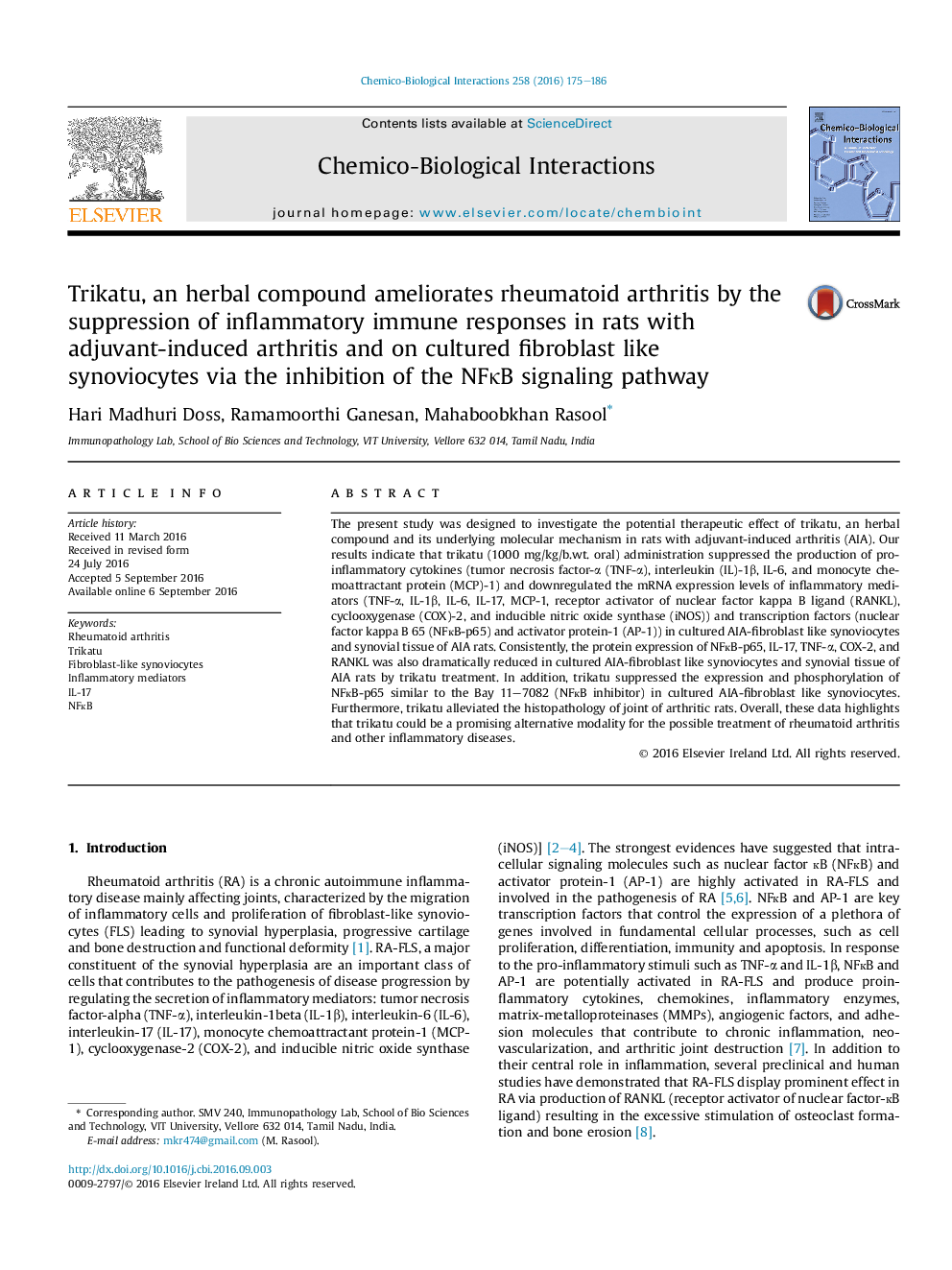| Article ID | Journal | Published Year | Pages | File Type |
|---|---|---|---|---|
| 2579776 | Chemico-Biological Interactions | 2017 | 12 Pages |
Abstract
The present study was designed to investigate the potential therapeutic effect of trikatu, an herbal compound and its underlying molecular mechanism in rats with adjuvant-induced arthritis (AIA). Our results indicate that trikatu (1000 mg/kg/b.wt. oral) administration suppressed the production of pro-inflammatory cytokines (tumor necrosis factor-α (TNF-α), interleukin (IL)-1β, IL-6, and monocyte chemoattractant protein (MCP)-1) and downregulated the mRNA expression levels of inflammatory mediators (TNF-α, IL-1β, IL-6, IL-17, MCP-1, receptor activator of nuclear factor kappa B ligand (RANKL), cyclooxygenase (COX)-2, and inducible nitric oxide synthase (iNOS)) and transcription factors (nuclear factor kappa B 65 (NFкB-p65) and activator protein-1 (AP-1)) in cultured AIA-fibroblast like synoviocytes and synovial tissue of AIA rats. Consistently, the protein expression of NFкB-p65, IL-17, TNF-α, COX-2, and RANKL was also dramatically reduced in cultured AIA-fibroblast like synoviocytes and synovial tissue of AIA rats by trikatu treatment. In addition, trikatu suppressed the expression and phosphorylation of NFкB-p65 similar to the Bay 11-7082 (NFкB inhibitor) in cultured AIA-fibroblast like synoviocytes. Furthermore, trikatu alleviated the histopathology of joint of arthritic rats. Overall, these data highlights that trikatu could be a promising alternative modality for the possible treatment of rheumatoid arthritis and other inflammatory diseases.
Related Topics
Life Sciences
Environmental Science
Health, Toxicology and Mutagenesis
Authors
Hari Madhuri Doss, Ramamoorthi Ganesan, Mahaboobkhan Rasool,
